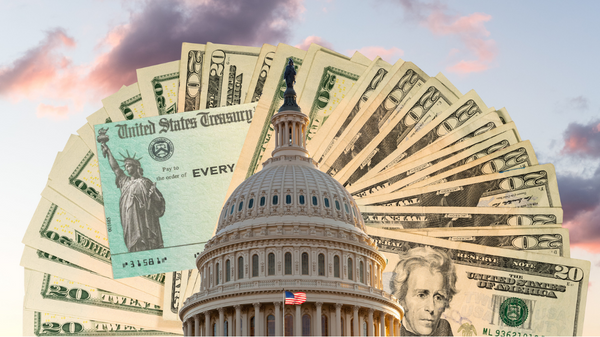House Republicans press ahead with debt ceiling plan
(The Center Square) – U.S. House Republicans may get their debt limit spending bill across the finish line this week as the federal government faces a looming deadline to raise the ceiling or default on obligations.
The House Rules Committee is expected to mark up the legislation Tuesday afternoon, which means there could be a vote later this week. Reports indicate Republican leadership has been working feverishly to ensure they have the votes for the deal, which they hope will set the table for negotiations with President Joe Biden and leading Democrats.
The Treasury Department is expected to give an update this week on just how close the U.S. is to defaulting on this imminent debt limit deadline. Defaulting on debt obligations would be unprecedented and likely catastrophic for the American economy.
House Speaker Kevin McCarthy, R-Calif., pitched his bill to voters on Fox News’ “Sunday Morning Futures with Maria Bartiromo.”
“I cannot imagine someone in our conference who would want to go along with Biden’s reckless spending,” he said. “This is responsible, this is something we have sat down for months and everybody’s had input in. It doesn’t solve all our problems, but it gets us on the right path.”
McCarthy’s nod toward “reckless” federal spending is a driving impetus for Republicans in this fight. The U.S. debt has surpassed $31 trillion and will top $32 trillion in a few months. Biden has reduced the deficit from the pandemic era high-level spending, but both the deficit and the debt are at unprecedented highs in recent years.
Budget groups have warned that if something is not done soon the U.S. could be in trouble.
The Limit, Save, Grow Act, as Republicans have named it, would extend the debt ceiling either until March 31 of next year or for another $1.5 trillion, whichever comes first. Notably, that would likely put the next debt limit battle in the heart of election season.
“Our legislation accomplishes the same goal by returning the federal government to 2022 levels, and then limit the growth to spending over the next 10 years to 1% of annual growth,” McCarthy said in a speech last week unveiling the plan.
The legislation would cut back on climate and energy tax credits included in Biden’s Inflation Reduction Act and would put work requirements in place for some federal social programs, such as requiring Medicaid recipients to work 80 hours per month, averaging at 20 hours per week. The bill would also put Republicans’ long awaited permitting reforms in place and formally block Biden’s student loan cancellation.
McCarthy said the plan would cut $4.5 trillion in spending, a number the Committee for a Responsible Federal Budget said is about right.
“The Limit, Save, Grow Act also includes policy changes related to regulations, energy, and permitting, including the Regulations from the Executive In Need of Scrutiny (REINS) Act, which would require Congress to approve any federal rule or regulation that the Office of Management and Budget determines would have an economic impact of $100 million or more,” the group said. “It also includes the House-passed Lower Energy Costs Act, which would repeal some of the IRA’s climate provisions and rescind the funding for them, allow for additional sales of oil and gas leases, and make changes to permitting regulations. CBO estimates the Lower Energy Costs Act would add $430 million to deficits over the next decade, while there is no score yet for the REINS Act.”
While all of these Republican provisions are unlikely to make it into the final deal, they lay out Republicans’ goals and starts the negotiations, which will likely be fervent to reach an agreement and avoid a default.
So far, Biden has said he does not want to negotiate because the risk of defaulting on the debt is too great. If Republicans pass this legislation, the ball will be in his court.
“Why won’t the president sit down to negotiate a responsible debt limit increase?” McCarthy wrote on Twitter Monday morning. “What is he afraid of?”











